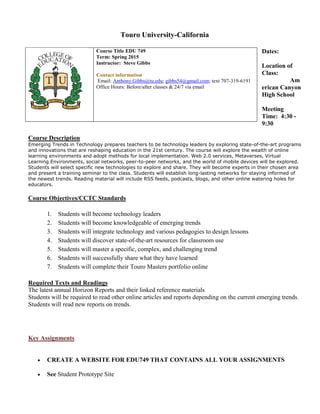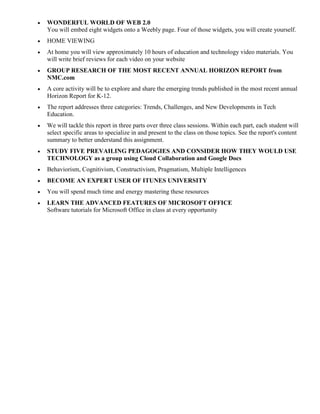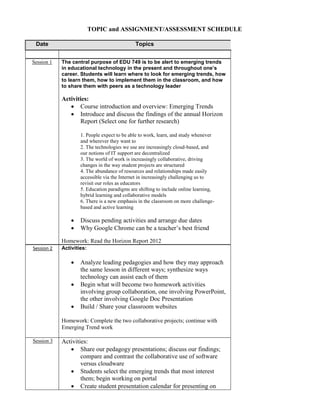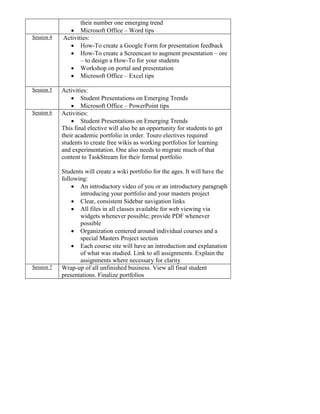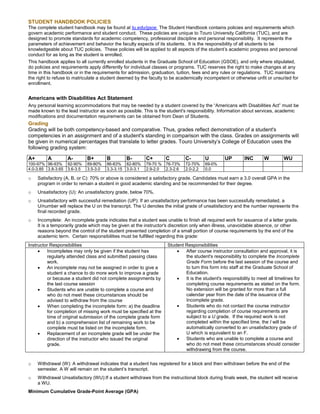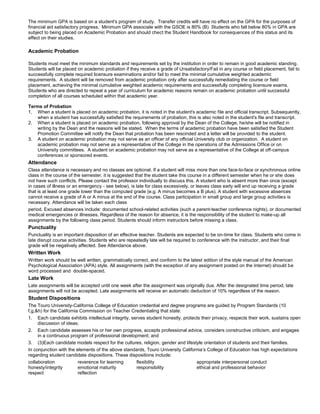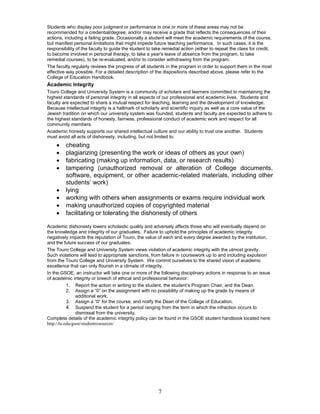This document provides information about an emerging trends in technology course offered by Touro University-California. The course will be held at American Canyon High School from 4:30-9:30pm. It will explore state-of-the-art educational programs and innovations, online learning environments, Web 2.0 services, and mobile devices. Students will become experts in an emerging trend and present to the class. Assignments include creating a class website, reviewing education videos, researching the Horizon Report, studying pedagogies and how technology supports them, and becoming proficient with iTunes U and Microsoft Office. The course objectives, required texts and readings, assignments, and topic/assignment schedule are also outlined.
